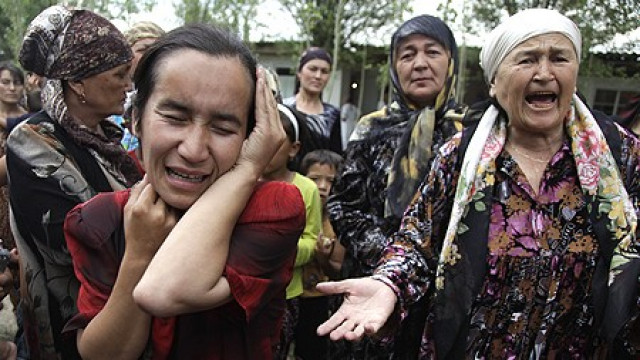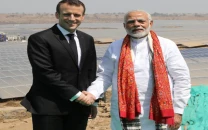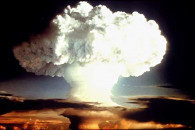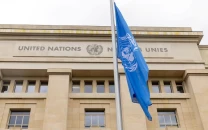Fresh violence in Kyrgyzstan as humanitarian crisis grows
Artillery fire and other fresh violence flared in Kyrgyzstan as thousands desperate to flee ethnic clashes.

UN experts called for urgent action to end the violence and highlighted the plight of women, children and the elderly, who made up the vast majority of those fleeing the conflict.
An AFP reporter witnessed more than a dozen rounds of artillery fire lobbed over the centre of the southern city of Osh and heard numerous explosions. It was not immediately clear from where the rounds were fired or where they hit. The artillery fire continued for about 45 minutes and was followed by sporadic gunfire and armoured vehicles rolling through the city. The exchanges came after the Kyrgyz government claimed that clashes were dying down.
Roza Otunbayeva, the leader of the interim government that took power after president Kurmanbek Bakiyev was ousted in April, appeared to drop a demand for foreign peacekeepers.
"There is not a need to send peacekeeping forces," she told reporters. "We hope to deal with this situation with our own forces," she added, saying the clashes were now "on the wane."
The clashes between ethnic Uzbeks and Kyrgyz around the southern cities of Osh and Jalalabad have claimed at least 178 lives and injured 1,866 people, according to the latest figures from the Kyrgyz health ministry.
But the International Committee of the Red Cross said "several hundred people have been killed in the fighting." It was too early to say exactly how many, as some victims had already been buried and might not have been counted, while other bodies had not yet been collected, the Red Cross added in a statement.
The humanitarian crisis engulfing the country continued to grow as refugees began to reveal the full horror of atrocities -- including rape and torture -- committed in the five days of fighting. Several thousand ethnic Uzbeks were waiting in desperate conditions to cross the border into Uzbekistan, following the Uzbek authorities' decision to close the frontier after accepting tens of thousands of ethnic Uzbek refugees.
Babies wailed under the beating sun at the barbed wire border post, their mothers unable to evacuate them out of the country to the relative safety of Uzbekistan. "What do we have to do to get out of here?" a woman pleaded in the crowd.
A spokesman for the office of the UN High Commissioner for Refugees (UNHCR) said 200,000 people had been displaced within the country in addition to the 75,000 who sought safety in Uzbekistan. "The humanitarian situation in the conflict zone is worsening. There are many refugees in need of help and attention," said Kazakh diplomat Zhanibek Karibzhanov, the special envoy of the transatlantic OSCE security group.
Among those who made it across the border into Uzbekistan were three sisters, aged between 16 and 23, who had been raped in front of each other by a mob of ethnic Kyrgyz men. The ordeal left them speechless, said Mukaddas Majidova, a doctor in the Uzbek town of Khoja-Obod.
"These girls were raped recently and by a lot of men and for several hours, according to their injuries," she told AFP. Another man was tortured with scalding water and bore knife wounds to the neck.
UNICEF, The United Nations Children's Fund, reported that 90 percent of the refugees from the fighting were children, women and the elderly -- and many of the children suffered from physical and mental violence. Ending the violence was the priority, UN Human Rights Council experts said.
"The present situation remains extremely fragile and dangerous and it must be confronted with swift and appropriate responses to calm the situation, restore order and prevent further outbreaks of violence," they added.
The fighting turned much of Osh and Jalalabad into smoking wrecks and raised fears over the future viability of the country of 5.3 million where Uzbeks make up 14 percent of the population.
Osh has now essentially been split along ethnic lines, with ethnic Uzbeks and Kyrgyz hunkering down in their own districts and not venturing outside.
Both the United States and Russia maintain vital military facilities in Kyrgyzstan, an ex-Soviet republic of pivotal strategic importance in the volatile Central Asia region, notably to Nato operations in Afghanistan.



















COMMENTS
Comments are moderated and generally will be posted if they are on-topic and not abusive.
For more information, please see our Comments FAQ